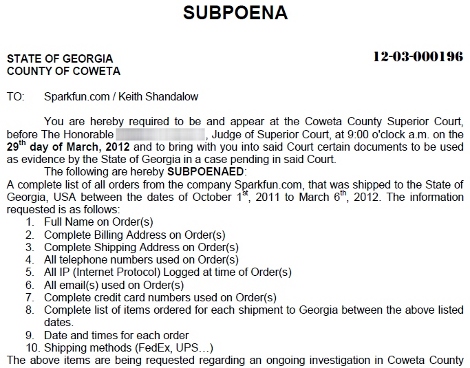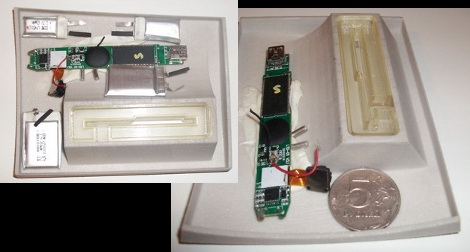
It’s no secret that we’re fans of open source, and open hardware. And we have to applaud companies like SparkFun who also keep their customers in the loop about what’s going on with the business end of the company. For instance, they were recently contacted by a Sheriff’s office and asked for customer information and are sharing the story. One of their products had been used in a series of credit card skimmers and the officers wanted to get purchase information to track down the bad guys. SparkFun doesn’t just give out customer data and so was subsequently served with a subpoena.
The thing is, the document asks for all customer orders shipped to Georgia during a six month period. This seemed like it covered way too many orders, since the majority of them didn’t include the part in question. But the officials were willing to work with the company and narrowed the request to just the 20 or so orders that had the item in them.
It’s an interesting read, and we agree with SparkFun’s point about white hats and black hats. Often when posting about projects here we wonder about the potential to use the knowledge for no-good. But restricting the availability of knowledge (or hardware in this case) because of a few bad-actors is a concept we oppose. It’s like being a hacking super hero, with great skill comes great responsibility.











